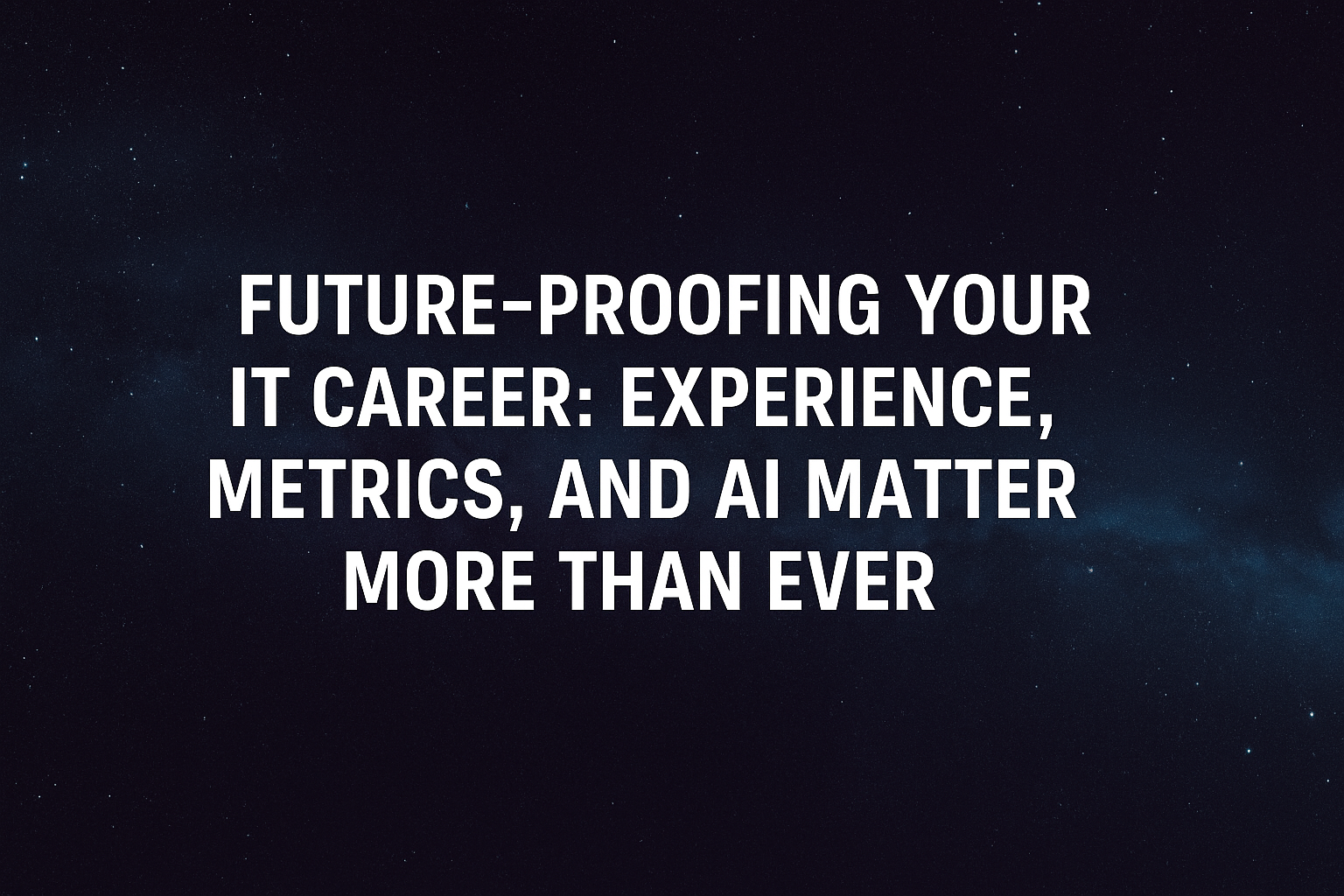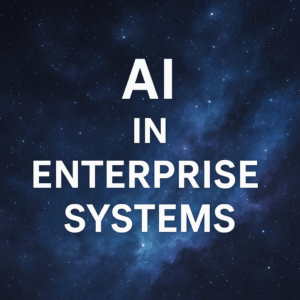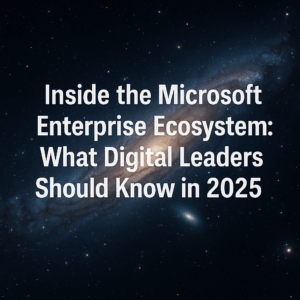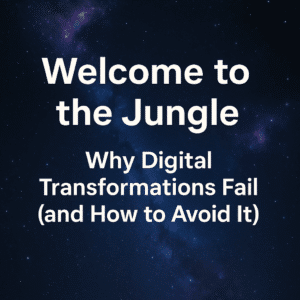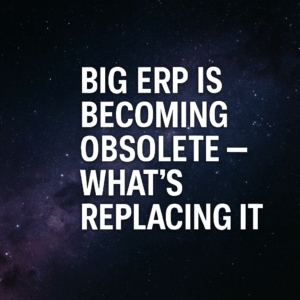When I talk with executives, candidates, and clients navigating the IT and digital transformation world, I hear a lot of questions about what it really takes to stand out in today’s market. Some wonder if years of experience are actually a disadvantage. Others want to know if certifications are still relevant. And almost everyone is asking about AI — what role it plays and how to future-proof their careers as this technology takes hold.
These are good questions, and they all tie back to one reality: organizations want proof that you can deliver. They don’t want theory, they want impact. Let’s break down the three areas that are most important right now.
Table of Contents
ToggleExperience Is Still an Advantage
There’s a perception out there that if you’re too senior in your career, you might be passed over. Some even go as far as to say age discrimination is holding people back in ERP hiring. I’m not seeing that in practice.
What I see is that experience is still one of the most valuable assets you can bring to the table. Companies want leaders who have navigated tough projects, managed messy ERP implementations, or rescued transformations that were going off the rails.
If you’ve walked into a program that was over budget and off schedule — and you managed to turn it around — that’s not baggage. That’s credibility. Hiring managers want to know you’ve got the scars. They want to know you’ve been in the trenches and know how to deliver results in tough environments.
This is especially true in transformation work. Anyone can manage when things are going smoothly. What organizations value are the people who can lead when things are chaotic and uncertain.
The Metrics That Matter: Money and Time
When it comes to resumes, interviews, or client conversations, there are two categories of metrics that always stand out above the rest:
- Money: Did you increase revenue? Did you cut costs? Did you implement under budget?
- Time: Did you accelerate delivery? Did you shorten a timeline? Did you cut process cycle times?
If you can point to these kinds of metrics — and be specific — you’ll put yourself ahead of the majority of other candidates.
For example:
- “Delivered an ERP program six months early, saving $10 million in costs.”
- “Turned around a failing transformation, reducing a projected 18-month delay down to 6 months.”
It doesn’t need to be complicated, but it does need to be quantifiable. Your goal is to connect the dots between your actions and the organization’s outcomes.
AI: Don’t Fight the Tool
The third major differentiator is one that’s evolving in real time: AI adoption.
We’re in a strange place right now. On the consulting side, we have clients who are very forward-thinking, but even they are only just scratching the surface of AI strategy. In fact, I have three clients at the moment who aren’t even talking about ERP upgrades. They’re focused solely on AI strategy: how to use it, how to govern it, how to integrate it into their businesses.
That tells you where the market is heading. AI is no longer a “nice to have.” It’s quickly becoming table stakes.
Here’s the thing: AI at scale is still in its early days inside large organizations. But individual professionals who learn how to use AI now will have a significant advantage.
If you can demonstrate on your resume how you’ve used AI to do your job better — automate reporting, accelerate decision-making, streamline documentation, test scenarios faster — you’ll immediately differentiate yourself. Hiring managers aren’t looking for generic hype. They’re looking for candidates who understand AI as a practical tool, not just a buzzword.
And there’s another advantage: if you understand how to use AI day to day, you’re in a position to influence how your organization adopts it. That makes you more valuable than someone who simply checks tasks off a list.
Why This Matters for Your Career
The IT and transformation landscape is changing fast. ERP is being redefined, AI is moving faster than most organizations can keep up with, and businesses are under constant pressure to deliver results.
If you want to future-proof your career, focus on three things:
- Leverage your experience. Don’t hide the scars — highlight them. Turnaround stories and battle-tested leadership are in high demand.
- Quantify your impact. Money and time are the universal metrics. Tie your accomplishments directly to savings or acceleration.
- Adopt AI early. Use it, document it, and showcase it. AI isn’t replacing humans, but humans who know how to use AI will replace those who don’t.
Final Thoughts
When I step back and look at what organizations want in today’s transformation leaders, it’s not complicated. They want people who can deliver outcomes, not just promises. They want professionals who know how to navigate disruption. And increasingly, they want to see how you’re using AI to do all of that faster and smarter.
If you’re positioning yourself for the next stage of your career, these are the areas to focus on. Don’t just list responsibilities on your resume — tell the story of how you saved money, saved time, turned around failures, and embraced new tools like AI.
That’s how you separate yourself in a crowded market.
👉 If your organization is rethinking its talent strategy, ERP roadmap, or AI adoption, our team at Third Stage Consulting can help. We’re 100% independent, vendor-neutral, and focused on practical strategies that deliver results.
📩 Contact us to learn how we can help you — and your team — prepare for the next wave of enterprise change.


